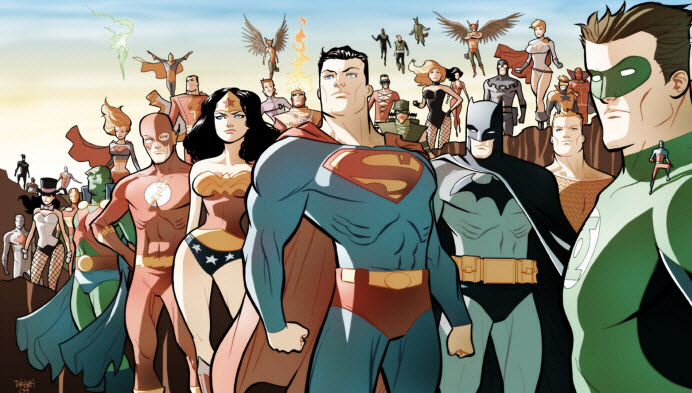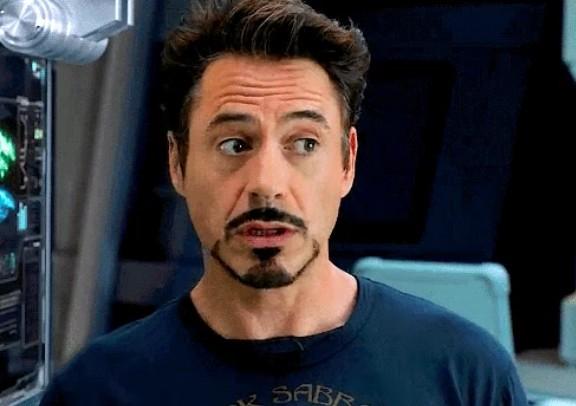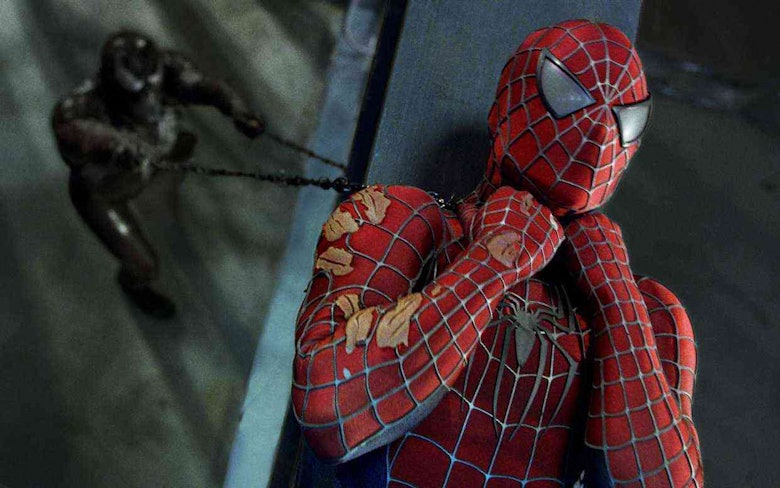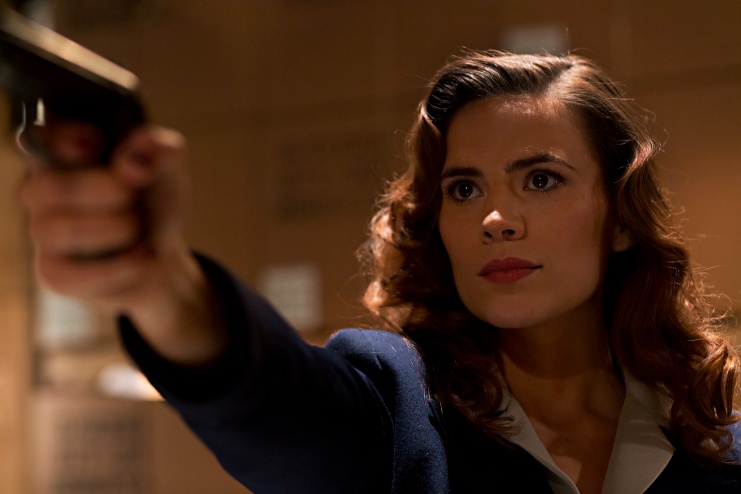Superheroes allow us to envision a world where the most powerful people not only have fantastical abilities but they also wish to use their powers for good, to protect the common person from the forces of evil, no matter the risk to themselves. And that's really important.
Imagining such fantastical worlds where such beings not only exist but are good, expresses a fundamental type of storytelling. A type of storytelling where stories serve to distill ideals about morality and what values we hold into icons of virtue with amazing powers overcoming insurmountable odds. Icons which spark imagination and reflect something of the way we think about those ideals and envision those values.
Not too mention they punch evil in the face while wearing brightly coloured costumes. That bit's important too.
 |
| "I didn't know the rest of you would be so... loudly dressed. If I had known, I would have brought out my Batman of Zur en Arrh costume." - Batman |
People wonder why there are so many superhero movies being made right now, and aside from the obvious 'because they make all the money', a big part of the reason is that most of the people making movies now grew up reading comics and loving superheroes.
Just like how George Lucas and Steven Spielberg grew up with and loved 1940s movie serials and then recreated elements of those serials in moves like Indiana Jones, most filmmakers today are of the geeky persuasion. People like Joss Whedon who are noted geeks and whose love for comics and superheroes are well known. And no where is this more evident than with Marvel Studios. Where other studios seem to want to distance their superhero movies from what I assume they think is the juvenile-ness of comics, Marvel embraces it.
Once The Avengers was a monster hit back in 2012, Marvel realised that they could make unabashedly comic book style movies set in a shared fictional universe and everyone would love it. And that's the thing, these movies are comic book movies in the best sense of the term where the storytelling more closely reflects that of a comic book than a movie. The logic of the fictional universe allows for the flights of fantasy and suspension of disbelief more commonly found in the pages of comic book than on the big screen.
And that signaled a change for the movies that followed The Avengers, there was a sense of confidence to Marvel Studios which led to a real "fuck it, let's do whatever we want" attitude which has really made the batch of movies in their Phase 2 phase leading up to The Avengers: Age of Ulton all the more remarkable and enjoyable.
This is because they didn't feel the need to make superhero movies anymore. I mean, they still made superhero movies since they make movies with superheroes in them but they aren't superhero movies in the way superhero movies before The Avengers were superhero movies.
They don't follow the same beats or worn out tropes of storytelling that identified superhero movies as superhero movies. They were all sequels so there was no origin story with the hero coming to grips with his or her new found powers and responsibility. There was no conflict between their superheroing and their private lives since none of them have secret identities. Remember the ending of Iron Man?
That's Tony Stark just straight up declaring that he is Iron Man to a press conference. This comes in stark (I'm so sorry) contrast to the press conference in The Dark Knight where Bruce Wayne is sorta kinda maybe going to reveal he is Batman, only for Harvey Dent to say he is Batman as part of a ploy to draw out the Joker.
In The Dark Knight the mere idea of Batman possibly revealing his secret identity is treated as the most serious thing ever. Something that will not only ruin Bruce Wayne's personal life and endanger all those dear to him, but will end all the good he does for Gotham.
Not to mention effectively giving into terrorism and letting the Joker win. Both Alfred and Rachel pretty much tell him not to do it despite the fact that the Joker will kill innocent civilians if he doesn't.
 |
| He legit nearly quits being Batman over this. |
Those are pretty high stakes just so Batman doesn't let it slip that he is actually Bruce Wayne, billionaire playboy philanthropist. Similarly, Peter Parker can never reveal that he is Spider-Man (with a hyphen) to his friends or family for fear of any of his enemies will start targeting them to get to him... despite the fact that all his enemies already do target his friends and family anyway whether out of plot convenience or on purpose so I don't know if it would make much of a difference...
Actually, all he is really doing is endangering their lives unnecessarily by keeping them in the dark about the possible threat of the Green Goblin wanting to drop them off a bridge to their deaths due to his vendetta with Spider-Man. Especially since the Green Goblin knows his secret identity and who the people he cares about are.
Marvel Studios realised right from the get-go that secret identities are kinda dumb. They even make fun of the original cover story for Iron Man's secret identity, that he was in fact Tony Stark's bodyguard, a deception that would help explain why Iron Man hangs around Stark Industries so much.
Although the fact that he and Tony Stark couldn't often be seen in a room together would raise concerns about how good of a bodyguard Iron Man was which seems to suggest that cover story raises more questions than it explains.
 |
| "Yeah... good thing I didn't go with that one." - Tony Stark, Iron Man |
So, Marvel very wisely decided to ditch the whole secret identity thing. I've already made this point before when I was talking about why Spider-Man introducing secret identities to the Marvel Cinematic Universe would be a bad idea but I guess there was still some more I wanted to say about it.
Now to be honest, I am slightly repeating myself in this post since I've already written about how Marvel don't make straight superhero movie sequels in my post about how Iron Man 3 really is a buddy cop movie with Iron Man in it. I've also talked about how most superhero trilogies seem to follow a pretty common linear progression.
The first film is origin story, the second film takes that established universe and expands on it often providing a meatier story-line, and then the third film comes along and doesn't know what to do, so it's just the second film but bigger and usually dumber.
 |
| "Looking back, the introduction of three villains and multiple plot lines that go nowhere in this movie was a bad idea." - Spider-Man, probably. |
Cracked.com also provided a pretty good breakdown of all the seemingly unnecessary storytelling tropes superhero movies tend to follow for some reason. Maybe because it became expected to see these trends in a superhero movie once the pattern was laid down by the Christopher Reeve Superman franchise as the first superhero movie franchise. Maybe the same beats just were hit due to laziness or convention, who knows.
This post is sort of the culmination of those other posts, kinda because I don't think I gave enough details to what I meant by a superhero movie as well as my thoughts on sequels and kinda because I want to elaborate on my thoughts about superhero sequels and what Marvel Studios have done post the first Avengers movie in anticipation for The Avengers: Age of Ultron.
I mentioned above how the amazing success of The Avengers meant that Marvel felt confident to do whatever they wanted and it shows. Therfore, they made a breezy fun TV show about a bunch minor agents from S.H.I.E.L.D who never appeared in the comics nor even existed in the movies (aside from Agent Coulson) just because they can. Then they made TV show set in the 1940s with a female lead in order to make points about misogyny and espionage while showing the origins of S.H.I.E.L.D just because they wanted to.
 |
| This broad has got more spunk than most dames. |
Also, they made the gritty as hell Daredevil for Netflix which is amazingly brutal and utterly intense. This, as you may be aware, is a complete reversal from the often lighter tone of the rest of Marvel's output and closer to The Wire or a similar HBO drama with lots of graphic violence and crime/political intrigue. Again, just because they wanted to and could, so they did. By the way, check out Daredevil on Netflix, it is fantastic.
And that's just television. On the movie front, they no longer felt the need to make superhero movies anymore but expanded to just make movies in whatever genre they want to, they just happen to have superheroes in them. Or in the case of Guardians of the Galaxy, with no 'superheroes' at all, but a talking raccoon. Once more, just because they're in a position now where they can try whatever they want with little risk so they do.
However, Age of Ultron looks like it'll be a superhero movie, more so than Iron Man 3, Thor: The Dark World, or Captain America: The Winter Soldier were. Whereas Iron Man 3 was a buddy cop movie, Thor: The Dark World was a scifi fantasy adventure, and Captain America: The Winter Soldier was a political thriller action movie, the latest Avengers installment looks to be a superhero movie in the real sense of the team, superheroes fighting a big bad.
 |
| "Good evening, I will be your villain tonight. Collapsing buildings can be found on your left, while the charred remains of your loved ones can be seen to your right. Please enjoy the last few minutes of your life." - Ultron, probably |
And that can be a good thing. And in terms of the Avengers, that can be a great thing. Since the thing is, we've never had a superhero team sequel before (and no, the Fantastic Four and X-Men don't count). We've never had a sequel to a superhero team movie where the superheroes had their own adventures and movies inbetween. So, that's interesting in and of itself.
But where this becomes even more different is that the individual superheroes sequels were quite definitely not pure superhero movies but rather played in other genres, Age of Ultron looks to be aiming for the ultimate superhero feel as a movie. People with fantastical powers coming together to defeat an unstoppable villain and facing insurmountable odds.
 |
| Like the perils of a bad Photoshop job on your movie poster. |
The genre seems straight ahead superhero, no divergence into buddy cop-ness, sci fantasy, or political thriller. While there may have those elements possibly, I would assume they would be buried in the subtext rather than be the focus like they were in the individual superheroes' movies.
I guess what I'm trying to say is that Age of Ultron looks like it's going to be the ultimate superhero movie with no shame in being a superhero movie and I'm ridiculously excited to go see it.
References:
8 (Pointless) Laws All Comic Book Movies Follow

No comments:
Post a Comment